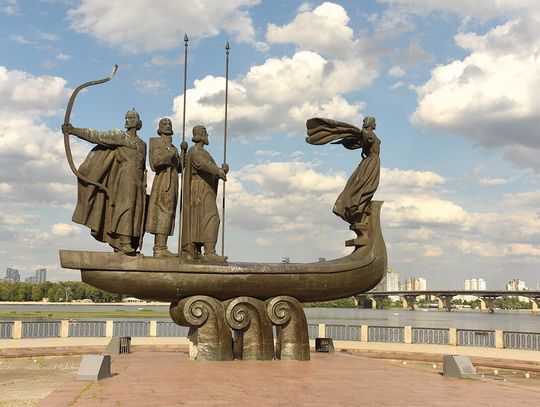Z żoną chętnie wypływamy w turystyczne rejsy od blisko 30 lat. Pływaliśmy na wycieczkowych liniowcach podczas sztormów i huraganów, które tak chybotały statkiem, że nie dało się spać. Pływaliśmy po wodach tak spokojnych, że podróż uśpiłaby prawie każdego. Byliśmy na Karaibach, pływaliśmy po Zatoce Meksykańskiej, przez Kanał Panamski, po Bałtyku, wokół Islandii i wzdłuż norweskich fiordów oraz po wodach Kanady. Wybieraliśmy się w rejsy kiedy byliśmy jeszcze młodzi i zdrowi, a teraz pływamy dalej, jako ludzie starzy, chorowici i zmęczeni. Moja żona trzy razy podczas rejsów zarażała się norowirusem i kończyła na oddziale kwarantanny; raz spędziła tam większą część dziewięciodniowego rejsu. Ale tak naprawdę nic poważnego jej się nie stało. Ja natomiast przeżyłem na środku Oceanu Atlantyckiego atak serca. Załoga chciała zostawić mnie i moje serce na jakiejś wyspie u wybrzeża Afryki, o której nigdy nawet nie słyszałem. Postawiłem się, żeby zostać na pokładzie.
Trudno się przyznać, ale ja i moja żona spędziliśmy na morskich rejsach statkami wycieczkowymi łącznie ponad rok. Myślę, że to więcej czasu niż na morzu spędził Ishmael, słynna postać z książki Hermana Melville'a pt. „Moby Dick”.
Z ostatniego rejsu wróciliśmy cztery dni temu. Kolejny mamy w planach za kilka tygodni, a jeszcze jeden pod koniec lipca.
Wiem, o czym myślicie.
Dlaczego ci ludzie spędzają tak wiele czasu na statkach wycieczkowych?
Dobre pytanie.
Sam je sobie zadaję od prawie 30 lat – od kiedy zaczęliśmy pływać w rejsach. Odpowiedź na nie, jak na wszystkie ważne życiowe pytania, nie jest łatwa. Wiem, że moja żona uwielbia rejsy. Uwielbia bezczynność. Kiedy wsiada na odpływający z portu statek, wraz z nim odpływają wszystkie sprawy, które na co dzień ją pochłaniają. Odkłada na bok gotowanie, sprzątanie, zakupy i wszystko to, czym na co dzień się martwi. Podczas rejsu może oddać się swoim ulubionym czynnościom: czytaniu, grze w karty, piciu caberneta, graniu w kasynie, jedzeniu zbyt dużych ilości pysznego jedzenia oraz przebywaniu w moim uroczym towarzystwie.
W domu przebywanie ze mną to żadna zabawa. Rano zwykle gimnastykuję się przez godzinę, po czym siadam do pisania wierszy, esejów, powieści, książek o poezji, znowu powieści, listów do przyjaciół, a nawet listów do moich wrogów. Z żoną widzimy się przy posiłkach i chwilę wieczorem, ale większość dnia spędza sama.
Dlatego tak bardzo lubi te rejsy.
A ja? Dlaczego ja lubię rejsy wycieczkowe?
Myślę, że głównym powodem, oczywiście poza obsesją mojej żony do spędzania wakacji w ten sposób, jest możliwość spotkania mnóstwa ludzi, którzy zainteresowani są rozmową.
Jak już wspomniałem, niewiele czasu spędzam poza moim biurkiem, a w rezultacie rzadko mam szansę porozmawiać z ludźmi, poznać ich, dowiedzieć się, jakie książki czytają i co oglądają w telewizji. Myślę, że żyję, jak żyje większość ludzi, w dość wyizolowanym świecie, który nie otwiera mnie na kontakt z ludźmi. Rejsy są więc świetnymi okazjami, żebym robił to, czego w innym wypadku na pewno bym nie robił.
Rejs daje mi szansę, żebym zapytał, jak się masz, czy podoba ci się wycieczka i czy książka, którą trzymasz w dłoni rzeczywiście powstrzymuje cię przed zaśnięciem.
Cruising
My wife and I have been cruising for almost 30 years. We’ve cruised through hurricanes that kept us awake for days with their rolling seas, and we’ve cruised tranquil seas that would put most people instantly to sleep. We’ve cruised the Caribbean and the Gulf of Mexico and the Panama Canal and the Fjords of Norway and the Baltic Sea and Iceland and Canada and on and on. We’ve cruised young and healthy, and we’ve cruised old and sick and tired. My wife has caught the norovirus 3 times on cruise ships and found herself quarantined repeatedly – once for almost the entire length of a 9 day cruise. But really, that’s not that big a deal. I once had a heart attack in the middle of the Atlantic Ocean. The cruise line wanted to dump me and my heart attack on some island off the coast of Africa I had never heard of. I fought it.
I hate to admit this, but my wife and I have spent more than a year at sea on cruise ships. I think that’s more time than Ishmael the main character in Herman Melville’s great seafaring novel Moby Dick spent on a ship.
We’ve been back from our last cruise for 4 days. The next one is coming up in a couple of weeks. The one after that is scheduled for the end of July.
I know what you’re wondering.
Why do these people spend so much time on cruise ships?
Good question.
I’ve been wondering about it myself for the last 30 years -- since I started cruising.
The answer – like all the answers to all the great questions of life – is not easy.
I know why my wife loves to cruise. She loves not doing anything. When she gets on a cruise ship, she sails away from all the things that usually call for her attention. She puts aside cooking and cleaning and shopping and worrying about the things that she usually worries about. She can then devote herself to the pleasures she most craves: reading, playing card games, drinking her favorite cabernet, gambling in the casino, eating way too much really good food, and the pleasure of my company.
At home, I’m really not much fun to have around. In the morning I typically exercise for about an hour, and then I start writing: poems, essays, novels, books of poems, more novels, letters to friends, and even letters to enemies. My wife and I get together for meals and a little socializing in the evening, but other than that she’s on her own.
So you see why she likes cruising.
And me? Why do I like cruising?
I think that what most keeps me cruising – other than my wife’s obsession with this sort of vacation – is the way it throws me together with lots of people who are genuinely interested in chatting.
Like I suggested above, I don’t spend a lot of time away from my writing desk, and as a result I don’t often get a chance to chat with people, get to know them, find out what they’re reading or what they’re watching on TV. I think I’m like a lot of people in this. I live in a world that’s pretty isolated, a world that doesn’t open me up to a lot of people. Cruising is, therefore, just about the perfect vacation for me because it gives me the chance to do what I never do otherwise.
Cruising gives me the chance to ask you how you’re doing and whether you like to cruise and whether the book you have in your hands is really keeping you awake?
John Guzlowski
amerykański pisarz i poeta polskiego pochodzenia. Publikował w wielu pismach literackich, zarówno w USA, jak i za granicą, m.in. w „Writer’s Almanac”, „Akcent”, „Ontario Review” i „North American Review”. Jego wiersze i eseje opisujące przeżycia jego rodziców – robotników przymusowych w nazistowskich Niemczech oraz uchodźców wojennych, którzy emigrowali do Chicago – ukazały się we wspomnieniowym tomie pt. „Echoes of Tattered Tongues”. W 2017 roku książka ta zdobyła nagrodę poetycką im. Benjamina Franklina oraz nagrodę literacką Erica Hoffera, za najbardziej prowokującą do myślenia książkę roku. Jest również autorem dwóch powieści kryminalnych o detektywie Hanku Purcellu oraz powieści wojennej pt. „Road of Bones”. John Guzlowski jest emerytowanym profesorem Eastern Illinois University.
—
John Guzlowski's writing has been featured in Garrison Keillor’s Writer’s Almanac, Akcent, Ontario Review, North American Review, and other journals here and abroad. His poems and personal essays about his Polish parents’ experiences as slave laborers in Nazi Germany and refugees in Chicago appear in his memoir Echoes of Tattered Tongues. Echoes received the 2017 Benjamin Franklin Poetry Award and the Eric Hoffer Foundation's Montaigne Award for most thought-provoking book of the year. He is also the author of two Hank Purcell mysteries and the war novel Road of Bones. Guzlowski is a Professor Emeritus at Eastern Illinois University.
fot.pxhere.com










